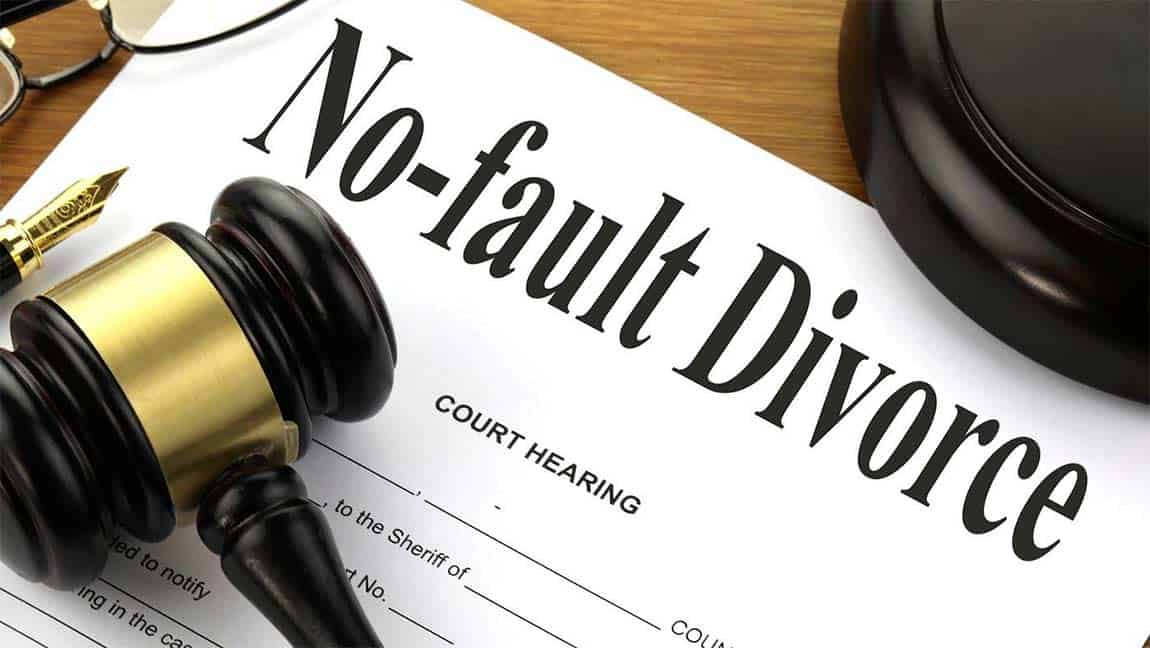|
Finances are usually the greatest source of worry when it comes to divorce. So what are the hard facts? Generally speaking, overall wealth decreases and individual spending increases when spouses separate, as a result of no longer sharing expenses and housing. However, the unfortunate truth is that after divorce, women are more likely to experience a significant household income drop than men. The same is true in comparisons of same-sex marriages. Lesbians who divorce are more likely to experience financial loss than gay men who divorce. Wealth Falls for Both Individuals After Divorce According to US data in a recent study, married individuals experience per person net worth increases of 77 percent over single respondents in the study and their wealth increases on average 16 percent for each year of marriage. Conversely, in the same study, divorced respondents’ wealth starts falling four years before divorce and they experience an average wealth drop of 77 percent. Divorce Affects Women's Wealth More Than Men's If we delve deeper, the statistics show that divorce has a lasting, negative impact on finances that, in heterosexual divorces, affects women the most. While women initiate divorce almost 1.5 times more often than men, this statistic does not always indicate their full preparedness for the financial reality of the separation. Most studies place the magnitude of the household income drop for women in the range of 23%–40% during the year following divorce. On average a woman can expect an almost 30% decline in her standard of living after divorcing, while men often see an increase of 10%. After a divorce is finalized, men hold 2.5 times the amount of wealth women do, and women’s household income falls 41% (compared to men’s 23%). How Can Women Prepare For Financial Hardship Prior to Divorce 1. Avoid Making Emotional-Driving Decisions Divorce can cause otherwise intelligent and even strategic individuals to make important decisions based on their feelings. Whether it be anger at the other spouse and a sense of retaliation or guilt over causing hurt to your partner, or fear about an uncertain future - making decisions from an emotional standpoint can and often does backfire. For women especially, who tend to lead with their emotions, the more you can keep yourself calm and as stress-free as possible (stress-free divorce? Now, if that isn't a huge oxymoron!) the more clearly you will be able to think and make decisions based on facts, figures and what is in your best interest now and moving forward. If you find it too difficult to deal with your ex-spouse for emotional triggering, work through your lawyer. In this way, you will insulate yourself and enable the best chance of looking at the realities in making decisions. 2. Have An Exit Plan Having a divorce plan that includes action steps that you will take before you tell your spouse you want a divorce, once you start the legal proceedings, and after the divorce is finalized, is imperative. During my own divorce, I did not have any plan. I knew I was terribly unhappy and wanted to have an emotionally better life for me and my daughters. Unfortunately, my ex-husband had been planning things on his end for a while, which I soon learned, and for which I was blindsided. Divorce coaching can help you to define your goals and be focused on the outcomes you want so you can create an action plan for each step of the way. Be sure to keep this plan in a place where your spouse or partner cannot find it, as it’s important to keep this plan private- it’s for your eyes only. 3. Build Your Divorce Team One of the most important things I've learned from my own divorce experience and working with others going through divorce is just how important it is to have a competent team of professionals in your corner for the best possible legal and business advice. This ensures that no stone goes unturned in any area of your life affected by your divorce, and that your future is well protected. Perhaps the most important members of your team throughout the process is an expert accountant/tax specialist as well as a financial advisor. A seasoned accountant, and one who has worked in the divorce space, will help you get clarity about the past financial trends in your marriage, what the implications are at present, and the anticipated effects this will have on your future post-divorce life. Their knowledge and advice can make a huge difference during the divorce agreement negotiation, as well as assist you with budgeting and planning in your day to day life. A financial advisor can provide expert insight into how a divorce may impact your long-term finances, and help you chart a post-divorce plan. A Certified Divorce Financial Analyst has experience and credentials related to navigating the financial aspects of divorce beyond that of your traditional financial advisor, says Samantha Garcia, a certified divorce financial analyst and wealth advisor at Halbert Hargrove. "There are many aspects that go into divorce, and not all advisors are skilled in knowing what questions to ask or what suggestions to offer when clients are going through a divorce." 4. Accurately Estimate Your Liquidity Needs Another way that women can avoid financial hardship is to plan for having access to enough cash for those significant expenses they will be shouldering alone. This incudes legal costs, which can add up quickly, but necessary to insure adequately funding divorce proceedings and enabling a strong legal strategy. From a day to day living standpoint, being aware of current expenses and anticipating the array of new, necessary expenditures during separation and divorce is vital. Purchases may include new housing, furnishings, automobile and other essentials. Lastly, it is critical to maintain long-term liquidity to fund your future goals, which should be taken into account and top-of-mind when reaching a settlement. According to Northern Trust. "Automobiles, boats and furniture are depreciating assets. Retirement accounts carry significant penalties and tax consequences if liquidated. Real estate can generate high carrying costs and on average only appreciates at the pace of real inflation. And even potentially profitable investments, such as a stake in a business or limited partnership, must be weighed against liquid assets you can use now to establish long-term security," Till next time, Elisa
1 Comment
Most people going through divorce are not thinking about estate planning, With all the emotional turmoil and shifts in lifestyle, it can be the furthest thing from one's mind. The thought process might be to worry about this after the divorce is finalized. However, the truth of the matter is, divorce and estate planning are interconnected and being proactive about your assets with a Trust & Estates attorney while in the process of your divorce is in one's best interest. Divorce Impacts More Than Your Day to Day Finances When it comes to your financial health, the obvious issues that most individuals are focused on during divorce include meeting day to living expenses and long-term financial wellness post-divorce. Less obvious aspects impacted by divorce and equally important "include your beneficiaries, asset distribution, and roles of individuals like executors or trustees, necessitating plan updates," according to Richard Gans, ACTEC (The American College of Trust and Estate Counsel) Fellow. Focused on negotiating issues such as spousal and child support, visitation and the division of marital assets, (not to mention, emotional pain, where to live, how to adjust to your non-married, single and co-parenting life and a gazillion other stressful factors), it is really wise to have a working knowledge of the "what ifs" when it comes to estate law. In fact it is a good idea for your divorce lawyer and estate planning lawyer to work together and be on the same page for full protection of you and your interests. As a coach, I assist my clients with a checklist of professionals to consult with in order to cover all the important legal and business foundational bases of your life and this includes access to estate lawyers. General Estate Planning Do's & Don'ts During Divorce Once a divorce is filed, there are automatic orders which go into affect which prevent married individuals from doing certain things as it pertains to their estate, with the laws varying by state, so it is important to check out the specifics for the state within which you reside. According to Shannon McNulty, Estate & Trust Attorney at The Village Law Firm in New York City, the automatic orders in New York include the prevention of asset transfers and excessive spending. It also prohibits changing beneficiaries for life insurance, tax deferred retirement accounts. "If you change these two shortly before filing, it's legal, but a judge may not always look kindly on this unless there are warranted reasons such as one spouse having a gambling problem or other addiction," according to Ms. McNulty. On the flip side, following divorce filing, automatic orders do not restrict changes to healthcare proxies, powers of attorney, and wills and revocable trusts. In fact, it is highly recommended that you review these estate documents for necessary changes, since you are still legally married until the judgement of divorce is finalized. For example, if your spouse is named as your healthcare proxy, which is for medical decisions, and/or your power of attorney, which is for money decisions, you may want to change these documents as soon as you file for divorce in the event you become incapacitated. This will prevent your future Ex from making decisions on your behalf if you are unable to do so and put the decision making in the hands of someone else that you trust. Safeguards If You Become Incapacitated If you do not have a living will, healthcare proxy and/or a power of attorney, you may want to consider getting them once you file for divorce. Unlike your will, which provides guidance for after you die, a living will and power of attorney are only valid while you're alive. You may want to assign someone that is not your soon-to-be ex-spouse in the event you become incapacitated. Working with an estate planning attorney is your best bet as soon as you file for divorce to educate yourself and implement any necessary measures to insure the best possible protection. Till next time, Elisa A “No-Fault Divorce” is a divorce a court may grant, without you having to prove your spouse is at fault. According to Kyle Persaud, Esq, "Earlier in American history, to get divorced, you generally had to prove to a judge that your spouse had committed some type of misdeed that harmed the marriage. This was called “fault divorce.” " States Loosened Their Divorce Laws Beginning in the 1930's As we moved into the 20th Century, specifically from the 1930s through the 1980s, states began to loosen their divorce laws and today, all U.S. states allow no-fault divorce. There are still some states that allow fault-divorce, based on certain grounds, but overall, what we are dealing with throughout the country is the ability to file for no-fault divorce. What is No-Fault Divorce? No-fault divorce means you "do not have to prove that the marriage is coming to an end because of something that is the other spouse's fault. All that has to be proved and stated in your divorce papers is that the marriage has been “irretrievably broken" for at least six months." Is New York Fault or No-Fault? When it comes to The Empire State, technically speaking, New York is not a true no-fault state. There are still grounds for divorce, although many people are now filing for divorce under the easier no-fault law. No-Fault Divorce Saves Time and Money One of the reasons for people opting to file under the no-fault law is that New York divorce used to be one of the most expensive court proceedings in the state. Fault-based divorces, where one of the spouses was “at fault"—such as by committing adultery or by abandoning the other spouse—could take a very long time to prove and thereby incurring huge legal costs. In 2010, New York became the last state to allow no-fault divorce and as a result, this has lessened extended trials just to prove the grounds for divorce. This has allowed for an easier and less costly process. Requirements for Granting a Divorce It can be said, generally speaking, that a no-fault divorce focuses on the finances and the best interests of the children, because a divorce will not be granted unless all the issues of child support, spousal support, distribution of property, custody, and visitation have been decided by the court or have been agreed upon by the parties. There is no question that divorce is an expensive proposition, causing a great deal of emotional turmoil, however, being able to file no-fault simplifies the process slightly. Till next time, Elisa |
ELISA
|
|
Elisa Valentino
HOLISTIC BEHAVIORAL PRACTITIONER DIVORCE & LIFE TRANSITION COACH SPIRITUAL LIGHTWORKER PUBLIC SPEAKER PODCAST HOST |
©2024 Hitting The Restart Button





 RSS Feed
RSS Feed
